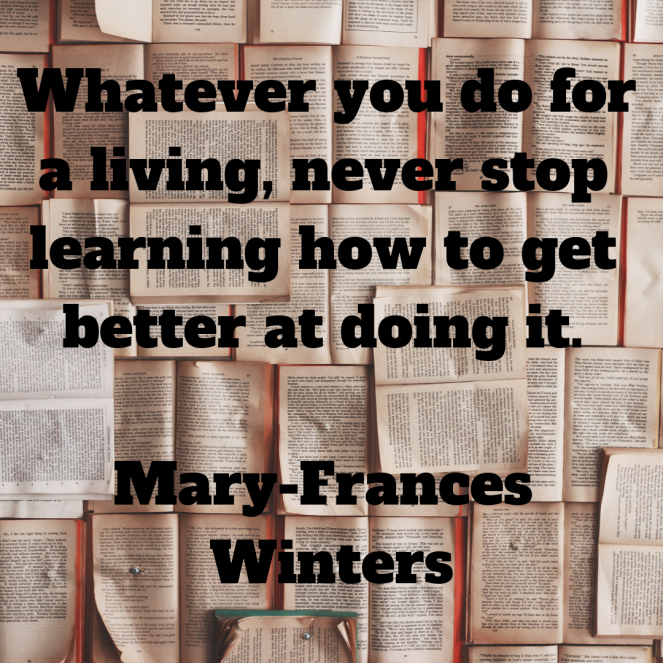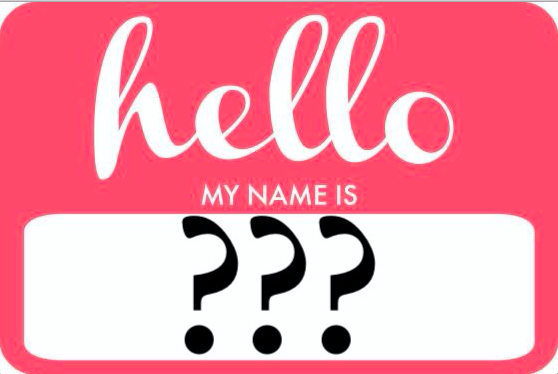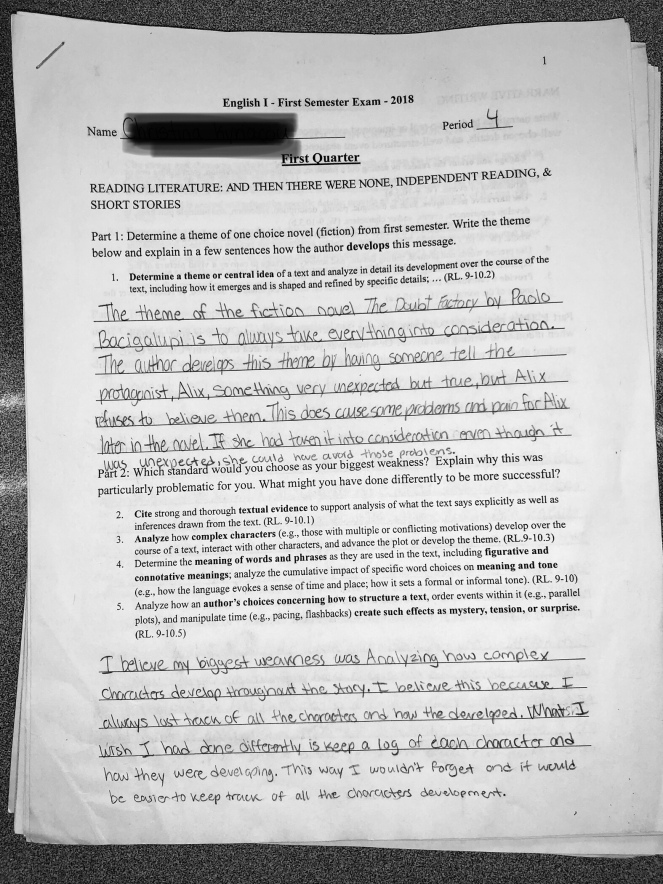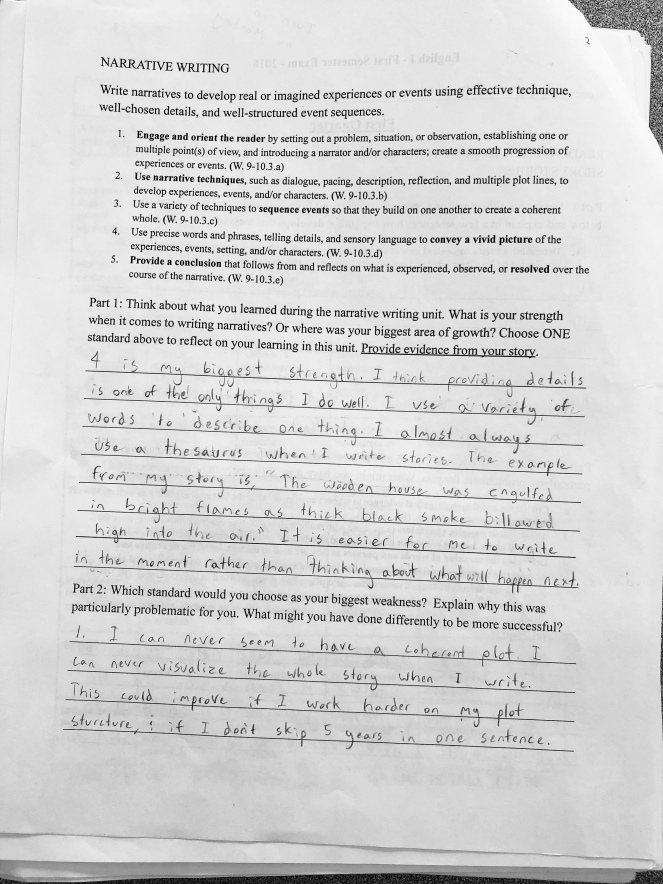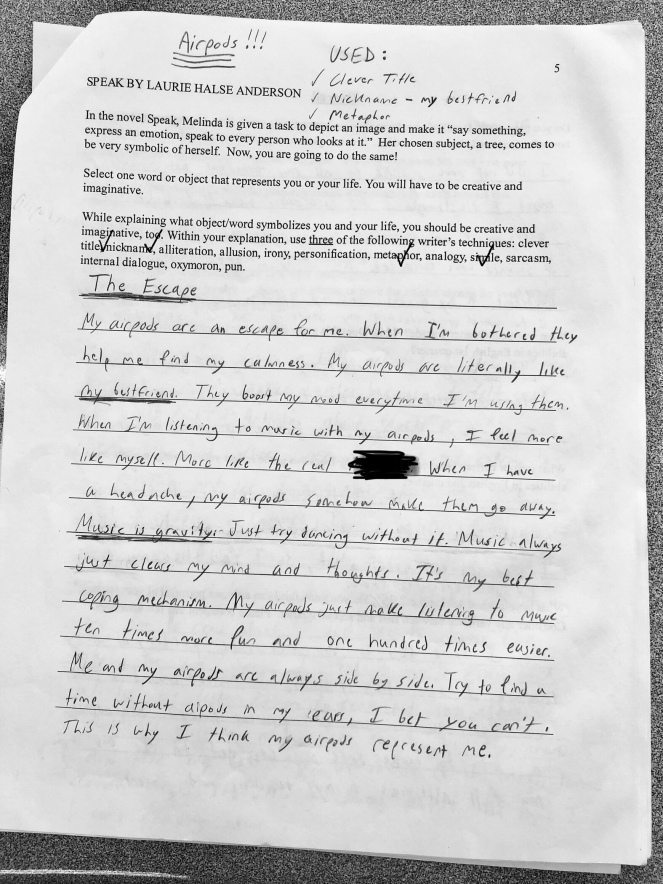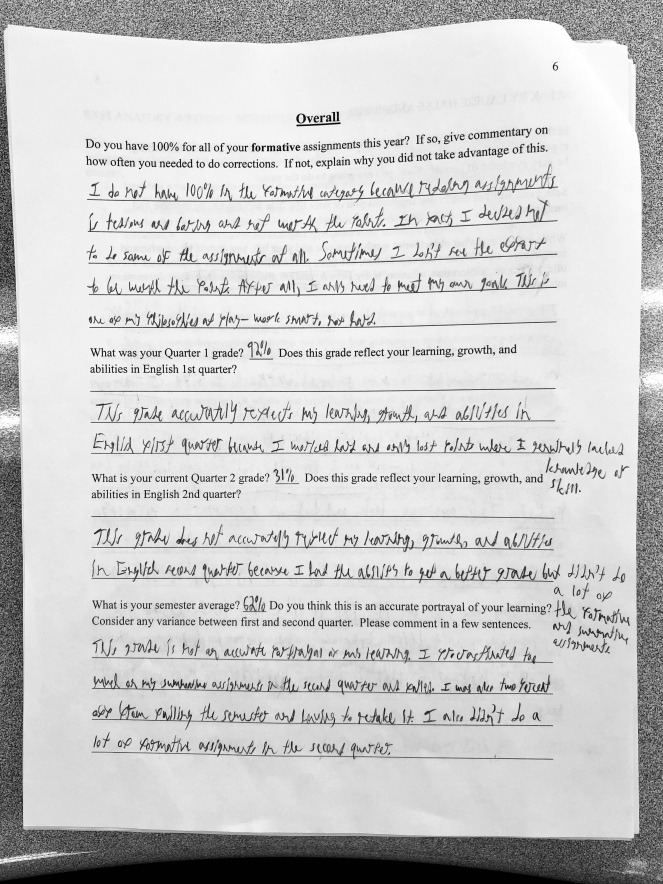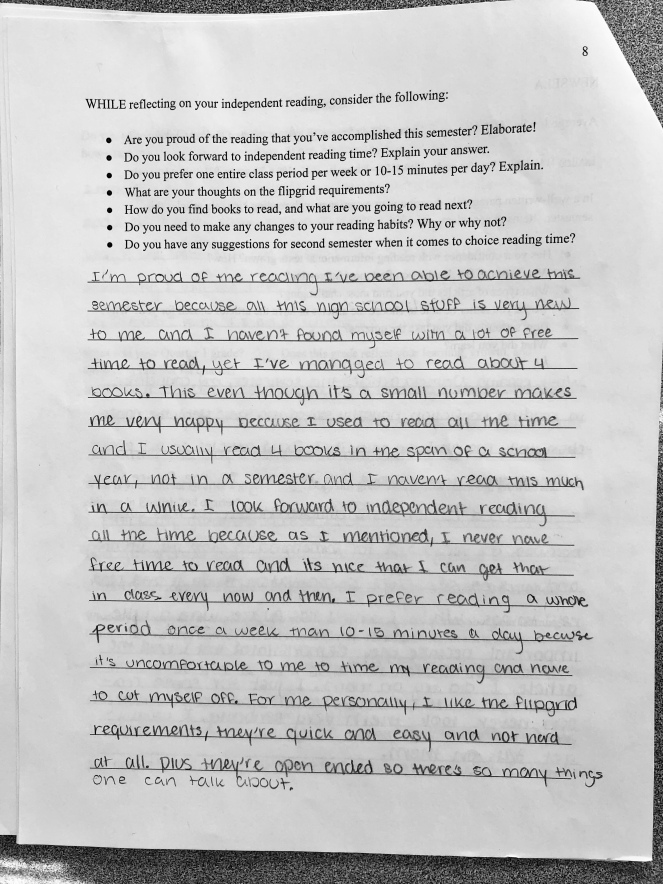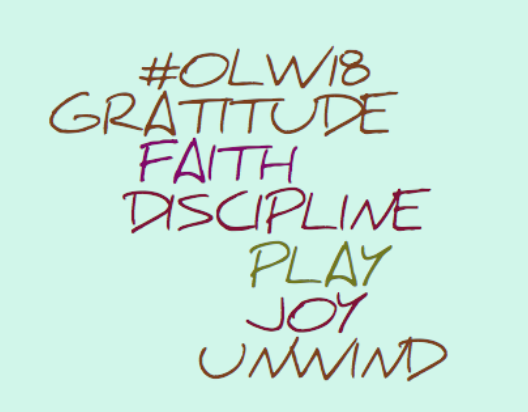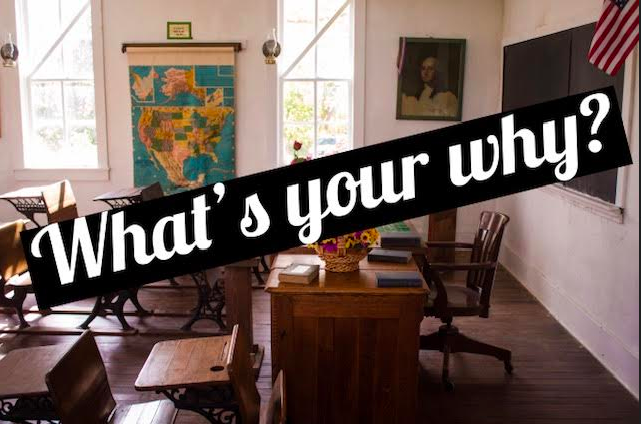
I don’t know about y’all, but I was ready for the end of the school year. And I feel terribly guilty saying that. I love my job. I love my students. But I need a nap. Desperately. I haven’t felt like this, especially with my work, in a long time. Because of this unsettling feeling, I keep asking myself the age old question, “What’s your why?” every couple of days. What exactly is my why? I feel like it’s definitely changed over the years. Or maybe it’s been added to? Regardless, because the school year is now officially over, what better time to reflect than right now?
I’m very aware that Simon Sinek, author of Find Your Why: A Practical Guide for Discovering Purpose for You and Your Team, as well as a well-known TED Talk called How Great Leaders Inspire Action, which I frequently show to my gifted students, believes that your why cannot be associated with your work, your job. I disagree. As a teacher, so much of who I am is connected to my “job,” so it’s not even a job to me. Teaching is a passion. It’s a way of life. It wakes me up–in more ways than one. It helps me be a better parent, and even wife. And really, a better human.
I knew I’d be a teacher at a young age. I used to send my mom to work with coloring book pages and ask her to photo copy them to give them to my “students,” who were stuffed animals sitting on the couch in our basement. As I grew older, my love of reading made me fall in love with all of my English/Language Arts classes, including Mrs. Loper’s class in 8th grade, even though I got detention for talking. (I swear, it WASN’T ME!!)
While in high school, my boyfriend’s mom was an English professor at the local college in my hometown, and she knew I loved to read. She would often ask me what I was reading for pleasure outside of class, and in high school, I just didn’t do that. It was hard for me to read more than one book at once (I have since changed!!), and keeping track of The Merchant of Venice and 1984 were difficult enough, so I simply didn’t read for pleasure. But, I remember reading The Great Gatsby for the first time. The long, descriptive sentences that flowed endlessly across the page. The jaunty cadence and rhythm, as well as the rich and poignant diction, made me fall in love with reading, and, discussing the text with others who felt the same way, only intensified that love. I knew in that moment that I wanted to do for people what my English teacher had done for me–instill a love of texts and have in depth conversations with students about books and reading. To me, Gatsby was a love story, albeit a terrible one, but a love story nonetheless. I like that Nick had a front seat to this love story and narrated it as best he could. It also has elements of drama and suspense, which have always been a favorite of mine in literature–not to mention the Real Housewives-esque vibe. For me, this classic text had everything I was looking for in a novel, and thus really inspired me to jump back into a reading life.
That school year gave me so much confidence as a reader. I thought that because I could read and discuss these classic texts that I was well on my way to being an English scholar extraordinaire. So I signed up for AP Literature and Composition. I wanted the challenge and I wanted to talk about these texts with peers who loved literature as much as I did–or so I thought. At the end of my junior year, the AP Lit & Comp teacher called me down to his room for a chat. I was under the impression that he was going to give me some reading material for the summer months, but when I got down there, I quickly realized that he was encouraging me to not take the course, citing my average to low testing scores. Looking back on this instance in my life, I’d have been so much more receptive to what he was saying to me if he’d given me another chance. Some kids aren’t great test takers. There has to be another way to measure the skills of that child. I clearly wanted to read and grow more in English–I had the motivation, but not the skill. He could have certainly helped me with that. I regret not asking for a second data point from him–a chance to prove that I was worthy to take the class. Instead, he dismissed me back to class, and asked me to stop by the guidance office to get my schedule changed for the next year.
Being the stubborn girl I was and still am, I ignored his request and remained in the class, but moved forward with a sour taste in my mouth. AP Lit & Comp ended up being one of the hardest classes of my life because I couldn’t connect with that teacher after that conversation. I didn’t WANT to connect with him. I won’t lie, I struggled through the class and never once did I ask for help. But he didn’t help me either. He saw me struggle and the urge to say “I told you so” was greater than his desire to provide help and feedback. I ended up with a C overall in the class and an embarrassing score on the AP exam. I knew after that experience that I needed to make it better for students who were struggling through English classes. I loved to read. He didn’t take that away from me, thank God, but some students hate English classes. I wanted to be the one to show them there was nothing to hate. Today, I credit one of the main reasons I teach English/Language Arts to that one teacher, despite his best efforts to derail me.
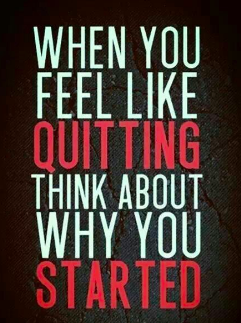
While my why is centered quite a bit around that horrible experience in class, I am grateful that it taught me the value of teacher/student relationships. I had so many wonderful models of amazing teachers growing up, and I remember how each of them made me feel when I walked into their classrooms. I tried to emulate those feelings when creating my own classroom environment during my first year of teaching. During my 5th year of teaching, I had an extraordinary group of students in my first period class, who I saw every day. They were quirky and funny, yet some of the most intelligent students I’ve had the pleasure of working with. I taught this class during the time when Daily Oral Language (DOL) warm ups were considered one of the best ways to teach grammar, but I was starting to feel otherwise. I decided to scrap the DOL’s about halfway through the school year and go rogue with my own warm ups, which ended up being some really quirky and funny writing prompts. The kids got a HUGE kick out of them and would try to outdo each other on how silly or funny they could write in response to the prompt. What first started as a warm up activity turned into half a class period! We laughed together every single day until the end of the school year.
Looking back on that, I reflect on the class time that we spent doing these writing warm ups. Was the time spent appropriately? Was there something better we could have been working on instead? Probably. But about four years ago, a former student had a local newspaper feature an article about him as an area athlete turned coach. He had graduated high school, become a teacher, and also a wrestling coach who had gone on to be pretty successful. When he was asked what his favorite class was in high school now that he was a high school teacher and coach, he responded that 10th grade English was his favorite class and it was because he and his peers were allowed to write about whatever they wanted at the beginning of class, and that time and silliness together created lifelong friendships with everyone in the class, as well as with his teacher.
These three stories contribute to the foundation of my why. There’s not a day in my life where I don’t come back to them, either consciously or subconsciously, and use them to frame how I work with my students each day. I want to instill a love a reading, provide students as much feedback as possible, and ensure that each student walks away with a sense of belonging and, perhaps, a few friends. Now that the school year is over, I’m revisiting these stories and reminding myself of what I need to do for next school year to make sure these whys, among many newer ones, are still on my mind. As I look to next year, after reminding myself of my whys, I plan to incorporate more choice writing into my weekly plans, and really encourage relationships among my students, both centered around reading and writing, but also, around togetherness.
And just like that, I’m looking forward to next year. After a little break, of course. 😉
